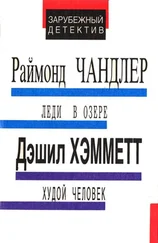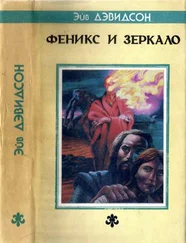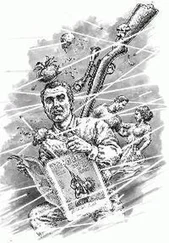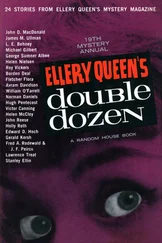Аврам Дэвидсон - Peregrine - primus
Здесь есть возможность читать онлайн «Аврам Дэвидсон - Peregrine - primus» весь текст электронной книги совершенно бесплатно (целиком полную версию без сокращений). В некоторых случаях можно слушать аудио, скачать через торрент в формате fb2 и присутствует краткое содержание. Год выпуска: 1971, ISBN: 1971, Издательство: New York : Walker, Жанр: sf_all, на английском языке. Описание произведения, (предисловие) а так же отзывы посетителей доступны на портале библиотеки ЛибКат.
- Название:Peregrine : primus
- Автор:
- Издательство:New York : Walker
- Жанр:
- Год:1971
- ISBN:0802755461
- Рейтинг книги:5 / 5. Голосов: 1
-
Избранное:Добавить в избранное
- Отзывы:
-
Ваша оценка:
- 100
- 1
- 2
- 3
- 4
- 5
Peregrine : primus: краткое содержание, описание и аннотация
Предлагаем к чтению аннотацию, описание, краткое содержание или предисловие (зависит от того, что написал сам автор книги «Peregrine : primus»). Если вы не нашли необходимую информацию о книге — напишите в комментариях, мы постараемся отыскать её.
Peregrine : primus — читать онлайн бесплатно полную книгу (весь текст) целиком
Ниже представлен текст книги, разбитый по страницам. Система сохранения места последней прочитанной страницы, позволяет с удобством читать онлайн бесплатно книгу «Peregrine : primus», без необходимости каждый раз заново искать на чём Вы остановились. Поставьте закладку, и сможете в любой момент перейти на страницу, на которой закончили чтение.
Интервал:
Закладка:
"Appledore!”
“—that one finds such unexpected oddities as that Bean Cult back there, interesting concept, perhaps their god speaks to them from their bellies?—well, well, and so,” he went on, hastily, “onward!”
But his dilatory acquiescence was not sufficient to restore Peregrine to the mood of high hopes and pleasant anticipation with which he had commenced his journey. Was it worthy, indeed, of being called a journey when it had not even an approximate destination, no set goal? . . . Was it to be nothing more than successive and dangerous encounters with fanatics and with madmen, from one of which he would, eventually, not emerge? The night itself was not blacker than his mood, which last was at that moment not even illuminated by so much as a half-hope as the former was by a half-moon.
Chilled and grim, he tugged his cloak out from a saddlebag, and, having indifferently pulled it more-or-less around his shoulders and sides, sat huddled disconsolate upon his mule, scarcely caring which way it was carrying him, as not knowing for what purpose, and to what end. His heart, usually light enough, lay heavily within his breast.
From this mood he was, if not exactly aroused, at any rate diverted by the sudden awareness that his two companions had halted. He had opened his mouth in order to express, not so much his precise puzzlement at that moment as his general vexation in that hour, when Claud, with a gentleness that Peregrine (thinking over the gesture afterwards, and again) ceased not to marvel at, moved swiftly and laid his roughened hand across the
other young man’s mouth. Sheer astonishment kept Peregrine quiet, resentment -“For all that we are both bastards, I am the bastard of a king by a yeoman-farmer’s daughter, and he the bastard of a kitchen-wench by no-one-knows-what-sire: How doth he dare to lay his hand upon my lips? a gesture suitable only to and among the closest intimates”—mingling with astonishment— “ And where and from whom did he learn to move so gently?”—caution, not yet alarm —“What portends this singular and sudden deed?” So Peregrine made no sound, and automatically his hands and his knees brought the mule to halt.
The trees to left and right were but black masses against the night sky; but ahead, ahead, between them and the half-moon, the trees were grey and ghosty and seemed to catch the obscured and occluded moonlight, and suck it in, transmute and transform it, and shine with the now changed element, releasing it as a new radiance, their borders glowing and trembling with the nimbus of the nocturnal aurora.
And beyond all this, moonlit meadow seemingly riding on a cloud of dew, half-way between dew-dampened sod, sodden with dew, and the descending dew and the tree-tops, in the false light and false perspective, lights were seen which were neither moon nor stars; voices were heard which were not voices of which he had any familiarity; they muttered, they croaked, and now and again they rose and soared in a chant which was betimes both frightening and beautiful.
Peregrine was not aware of having moved. Indeed, was not the purpose of the halt, of his cojourner’s gesture, that they move not, lest they move into danger? Or—? Nor could he credit that the scene, whate’er it was, in the black, black meadow, moved itself towards them . . . Something was ruling in that night which made its own motions and its own immobility and ruled and reigned by its own laws. Something was of lightly moving in that glimmer and that glow which may have been man and which may have been beast or which may have been god or gods. He was suddenly certain of being in the near but very presence of a great mystery, and he was still (save unless he did in sooth move) and he awaited. He heard the measured croaking of a hundred frogs, he heard the bellow, muted, muted, of a multitude of bulls, he heard the belling of a hundred sounds as in one chorus, he heard another noise and another song and chant, and either
from near and low, or from far and so muted and mellowed, the words, the words, “ The Goat. . . The Goat. . . The Great . . . The Great . . . The Black . . . The Black . . . The Great Black Goat. . .
“The Great Black Goat ...”
The words died away, the words echoed, the words sang to each other in his inner ear, his flesh moved, the words changed, the old words echoed from some distant choir, antiphonally, new words, new chant, a climax reached, or being reached . . .
“Take...”
“Take . . .”
“Take ...”
“Red . ..”
“Red. . .”
“Bread ...”
“Bred? . .
“Bread ...”
“The knife . .
“The knife ...”
“...cut...”
“Cut.. .”
“Red. . .”
“Red...”
Peregrine felt the mystery quicken and increase its hold upon him, and fear grew within him, that he should hear, who was no postulant, no initiate, should hear this great mystery, this massive mystery, he knew not for sure which it was, of, perhaps? Dionysus? of mayhap, Hercules Manslayer? With one part of him he desired only to allow nothing to stop which would move him closer, and with another part he feared to do other than to withstand this other; the chant and song and drone continued, it halted, it went on, it stopped, it would never stop, it continued, rose and fell, rose and rose, high, higher, highest, it reached into a scream, it wailed away into a groan, it was as sweet as honey and as hot as love, his muscles moved, his head swam, he was falling, he was falling, it was illusion, delusion, he would fall only if he did not yield, such power of his own could he wield that he need not....
Hooves beat upon the soil of night, they were moving, they had moved on^ there were many of them, there was the man on
the white horse, there was the litter, where were Peregrine’s companions, for now he could point them out to them, the beasts which bore the litter and the rider upon the great white horse. Of his companions he could see nought. He rode close to the litter, he would not presume to place his hands upon the curtain, yet he presumed to raise his eyes not boldly but quite calmly to her guardian and to say to him, “Sir, I am Peregrine by name and by my present motion; I am son to a king, but never heir to him in any degree known to law. Know that never could I, would I, intend or furnish harm to this lady therein, whom you guard and whom, I must suppose, you guide. May I at least know more?”
The large man upon the large horse said, civilly, quietly, “In this age of change and of decay, of progress and retrogression, many are those who must move on if they at least would stand still.”
“Stand still? No, sir, I would see unknown islands arising fresh from the sea at dawn. I would see the lamps of new cities riding like ships’ lights in the darkness soon to give way to morning. I would look upon the walls of great cities and I would see their gates swing open to me and I would enter, sir, I would enter and see new things. I—”
And the man said, “You would know more. You would know that this lady whom I guard and whom I guide is called Princess Poppyseed? Know it, then. You would see gates swing open? Know, then, this as well: There is no escape, save through the Gates which our fathers would have died rather than enter, preferring death in its familiar forms to life, therein, in its unfamil
• y y
tar ... .
The curtains of the litter parted, the face of the young woman was revealed, she looked upon him with her shining eyes, he felt that his bastardy meant nothing to her, that it meant less than nothing to her. Her eyes glowed like lamps, and in the darkness of that night he felt the illumination of strange light. He saw his hand moving, saw it moving towards the embroidered curtains of the gorgeous seat on which she rode. He saw dawn breaking, and he saw Claud riding stolidly beside him, and Appledore ahead, wearing a look weary and spent, yet withal prepared, withal by no means devoid of strength. He looked for the rider on the white horse, and he saw him no more than he saw the
Читать дальшеИнтервал:
Закладка:
Похожие книги на «Peregrine : primus»
Представляем Вашему вниманию похожие книги на «Peregrine : primus» списком для выбора. Мы отобрали схожую по названию и смыслу литературу в надежде предоставить читателям больше вариантов отыскать новые, интересные, ещё непрочитанные произведения.
Обсуждение, отзывы о книге «Peregrine : primus» и просто собственные мнения читателей. Оставьте ваши комментарии, напишите, что Вы думаете о произведении, его смысле или главных героях. Укажите что конкретно понравилось, а что нет, и почему Вы так считаете.






